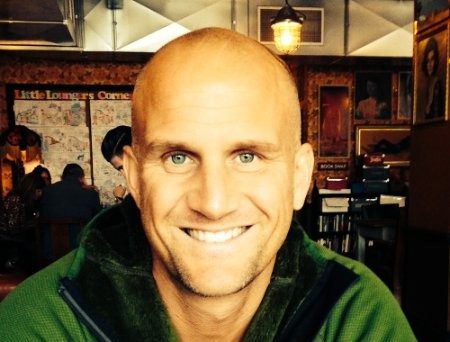- Messages
- 54,364
- Reaction score
- 8,479
- # of dives
- 500 - 999
Sad that he leaves his mom, wife, and two daughters at such a young age...

 divernet.com
divernet.com

Ex scuba instructor died in pool breath-hold
Static apnea is the freediving discipline that involves breath-holding while face-down and motionless in water. And the first rule drummed into freedivers is
Static apnea is the freediving discipline that involves breath-holding while face-down and motionless in water. And the first rule drummed into freedivers is never to do this unobserved.
The reason for the caution is that things can go badly wrong even with such a simple pursuit, but Ant Clausen, 47, was alone when he tried to boost his breath-hold personal best, during a holiday from the UK to his native New Zealand.
Claussen had worked as a scuba instructor for six years in his 20s, before going on to become a professional freelance photographer and drone pilot, based in Liverpool.
Auckland coroner Alison Mills heard that Clausen, with his wife and two daughters, had been visiting family in January this year. His wife Natalia stated that he had been fit and a strong swimmer with no known underlying health conditions, according to a report on the inquest by the NZ Herald.
Having held his breath for three minutes the previous day, on 21 January Clausen told his wife that he planned to improve on that time, using the 2m-deep outdoor swimming pool at the apartment block where they were staying. He had even joked about the possibility of needing supervision for such a long breath-hold.
His mother later saw him in the pool and pulled him out unconscious. Natalia Clausen arrived about 10 minutes after last seeing her husband and applied CPR, but he was later declared dead at the scene.
Shallow-water blackout
Based on a pathologist’s report, the coroner ruled that Clausen had drowned after experiencing a shallow-water blackout, brought on by holding his breath for a long period. His heart was found to have been slightly enlarged, which could have made his heartbeat irregular, leading to unconsciousness and, if submerged at the time, death.
“Shallow-water blackout often occurs without any warning and, without an immediate rescue, the swimmer very quickly drowns,” said the coroner. “Unlike a ‘regular drowning’, where there can be six to eight minutes before brain damage and death, there is only about two and a half minutes before brain damage occurs, then death, as the brain has already been oxygen-deprived.
“Repetitive breath-holding, however, increases risk of shallow-water drowning, as does hyperventilating prior to entering the water.” And she issued advice to others: “Never hyperventilate before entering the water, ignore the urge to breathe, swim alone or play breath-holding games.”



